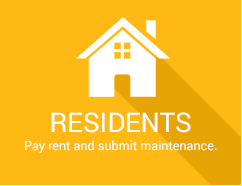Pest Control Denver Rental Management
Pest control has once again taken front seat as a critical topic in property management. One of the main reasons is that, with the banning off the pesticide DDT a few years back, bedbugs (and a whole new class of unsavory pests) are causing massive amounts of damage… and headaches for both tenants and landlords. Managing as many Denver properties as we do, both in the single and multi-family categories, there is not much we have not seen in this area.
Key Topics
Here is what you need to know.
With bed bugs and lots of other types of rodents – it’s not an easy task to exterminate them. It’s not just going in there and spraying. It’s now a three-way activity; between the exterminator, the landlord and the tenant. Depending on the nature of the issue, the tenant might have to put their clothes in bags, move and cover furniture or even move out for a period of time. This can cause quite a disruption to daily life.
It’s very important, as a property manager, to have documented policies and procedures for how you deal with pest control. These policies and procedures must also serve to inform the tenant of what their roles and responsibilities are in the event a mitigation issue arises. It is critical for the tenant to acknowledge that they understand this. Enter the Pest Control Addendum. This crucial document is your proof that you indeed have pest control policies and procedures, and by having the tenant sign the document, you can prove that the tenant understands/understood their responsibilities in case things get ugly in a mitigation situation.
A tenant calls and reports bed bugs, and an appointment is set with the exterminator. You communicate to the tenant what they need to do before the exterminator arrives. When the day arrives the tenant isn’t ready… they haven’t loaded their clothes in bags, cleaned out cabinets, pantries, etc. This is not a 3 day notice to correct. If you’re in a multi-family environment where this is a central unit and you have bed bugs, you have days, not weeks to mitigate this problem before you have a $10 to $20 thousand dollar nightmare on your hands.
So, when a tenant is not ready in terms of what you asked them to do (as per the Pest Control Addendum) this, at Echo Summit, is deemed a 24 hour notice to correct. You tell the tenant that if they’re not ready in 24 hours the following will happen: 1) you will be evicted and 2) we will have people on site that will move the items necessary and you will be billed for that. It’s important to be very clear and strong when dealing with pest mitigation.
Another area of pest control where a property manager or landlord can get into trouble is dealing with rodents. Let’s say a tenant calls and says they have rats. The scenario is they are renting a house that backs up to a canal with a garage door in the back. After they move in, they send back the tenant inspection form saying, ‘yes, everything looks fine.’ Two weeks later. The landlord gets a call saying they have rats. The landlord goes out and inspects the property and see confirming evidence of the rats form droppings, etc.
At the inspection, the landlord notices a few other things as well. The garage now has a pet door that wasn’t there before. By the way, this was a no pet property (this is a three day notice to correct by itself). They also notice a sledge hammer hole in the drywall between the house and the garage allowing a perfect traffic path for a rat to get inside. We ask the tenant what happened and they admitted to the damage. Then, you also notice they are running a meat smoking operation out of the garage. They admit to this as well and the landlord says, ‘well, this series of events is probably what’s causing the rat problem in your house.” The tenant agrees.
Now, given all these items, what do we, as a landlord do? What is our obligation? Do we say: “you admitted that your actions were the cause of the rats….you deal with it.” The answer is no. This also falls under Warrant of Habitability – which will be covered in another presentation. When we are a professional landlord, our general stance is that we fix the problem first, especially when the problems can pose a hazard to health and safety. Then, secondarily, we decide how and what to charge back to the tenant. If we have “smoking gun” proof that the tenant was the procuring cause of the rat problem, then we will deal with the handling of compensation to repair the damage.
For more information on this and other topics, please visit us online: http://echo-summit.com/education
If you prefer to watch a video on this topic, visit us at: http://echo-summit.com/education/videos








